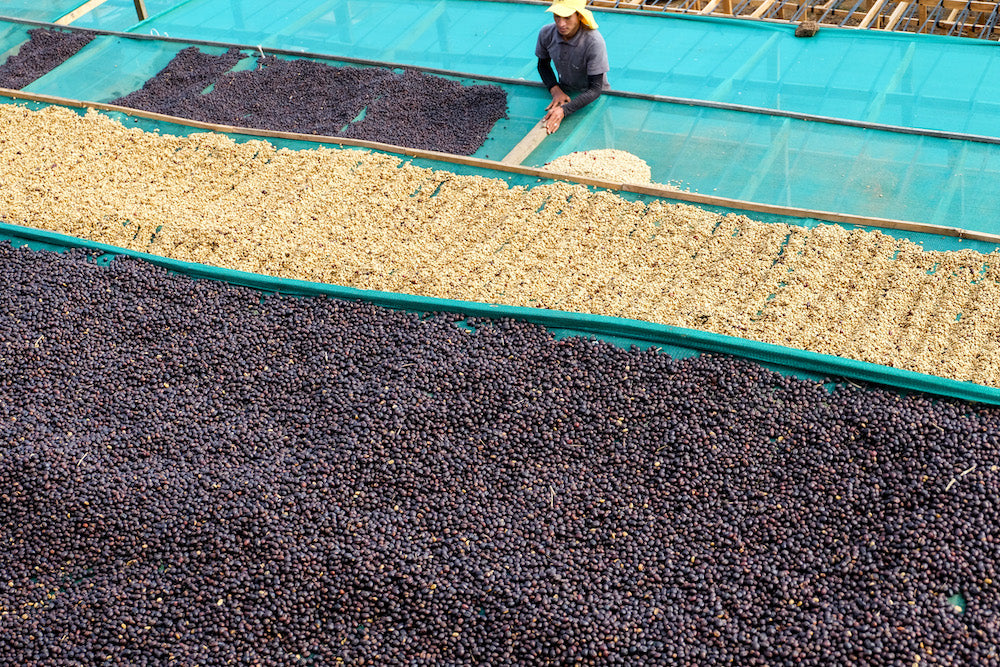
In the world of coffee, few topics are more captivating than the myriad of varietals that bring about the diverse flavours, aromas, and characteristics of our daily brew. One such varietal that has captured the attention of coffee connoisseurs and growers alike is SL28. Originating in Kenya, SL28 is a varietal renowned for its unique complexity and delightful acidity. Yet, it’s the latest development of SL28 being grown in the heartlands of Costa Rica that has stirred an exciting dialogue in the coffee community. Let's delve into this unique journey of a Kenyan coffee finding a new home in Central America.
A Brief History of SL28
SL28 was developed by Scott Laboratories in Kenya during the 1930s. This varietal is highly revered for its pronounced acidity and notes of citrus and berry, typically making for an incredibly vibrant cup of coffee. Because of its unique attributes, SL28 has won numerous accolades and is often featured in specialty coffee competitions.
Why Costa Rica?
Costa Rica, a nation already famed for its coffee production, offers a unique microclimate and fertile soil that have proven beneficial for growing high-quality coffee beans. Traditionally, Costa Rican farms have focused on Arabica beans like Typica and Bourbon. The introduction of SL28 aims to diversify the varietal landscape and bring something new to an already rich coffee culture.
The Fusion: SL28 meets Costa Rican Terroir
The transition of SL28 to Costa Rican soil has been nothing short of fascinating. The varietal maintains its inherent qualities like bright acidity and complex flavour profiles but adopts a new personality influenced by Costa Rica's unique terroir. Notes of tropical fruits like mango and pineapple have emerged, blending seamlessly with the varietal's traditional characteristics.
The Challenges and Triumphs
Growing SL28 in Costa Rica hasn't been without its challenges. SL28 is typically more susceptible to diseases compared to other more commonly grown varietals in Costa Rica. This has necessitated an investment in disease-resistant cultivation methods and vigilant farm management.
However, the results have been encouraging. Early cupping sessions indicate a bean that is both unique and extraordinary, capable of fetching premium prices on the specialty market.
Future Potential
SL28’s promising success in Costa Rica suggests that this might just be the beginning of a new chapter in the coffee industry, one that sees more experimental ventures between varietals and terroirs. The intrigue lies in how these combinations could redefine flavour profiles and perhaps even introduce entirely new tastes to the market.
Conclusion
The journey of SL28 from Kenyan highlands to Costa Rican farms exemplifies the innovative and ever-evolving world of coffee. As we look forward to more such exciting developments, one thing remains clear: the quest for the perfect cup of coffee is a never-ending adventure, and it’s one we’re thrilled to embark upon, one sip at a time.
Have you tried Costa Rican SL28 yet? If not, we have news for you! We just bought a very special coffee which is on its way to the roaster now. Here's the brief:
Don Sabino Micromill - Finca Jordán - SL - 28 - Natural
Don Sabino Micromill is a father-son project that produces meticulous coffees in what seems like "simple" conditions, but with incredible care and attention to detail.
Though the mill was established in 2011, Steven Vargas and his father have both been in coffee their whole lives. They own several plots of farmland in the area, where they grow a number of different varieties: Villa Sarchi is their primary crop, but they also grow, Catuai, Caturra, Gesha, SL-28, and a small amount of Mokka. For several of the mill's early years, the Vargas drying beds were full of only Naturals, but lately, Steven is attempting a small amount of Honey coffee as well, “because Luis likes it,” he says of Luis Arocha, the senior green-coffee buyer for Oxcart Coffee: Cafe Imports Latin America, who is based out of the office in San José.
The Don Sabino micromill manages the farms El Apostol, El Orvo, and La Roca.
Artwork and pricing are still coming so watch this space!!!!
